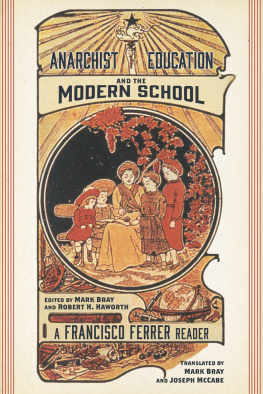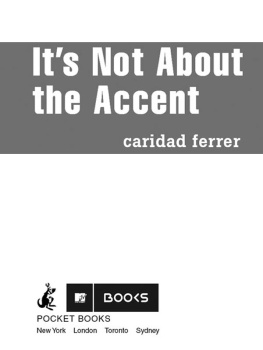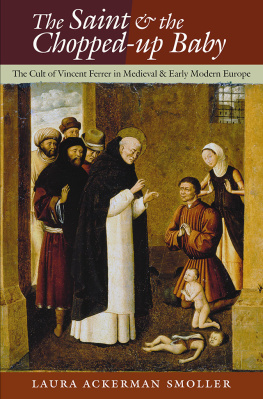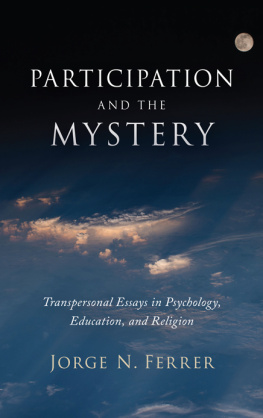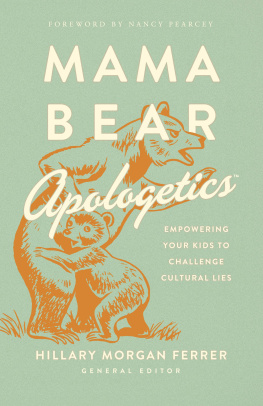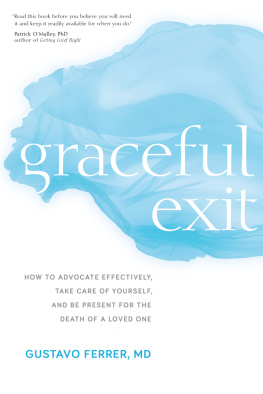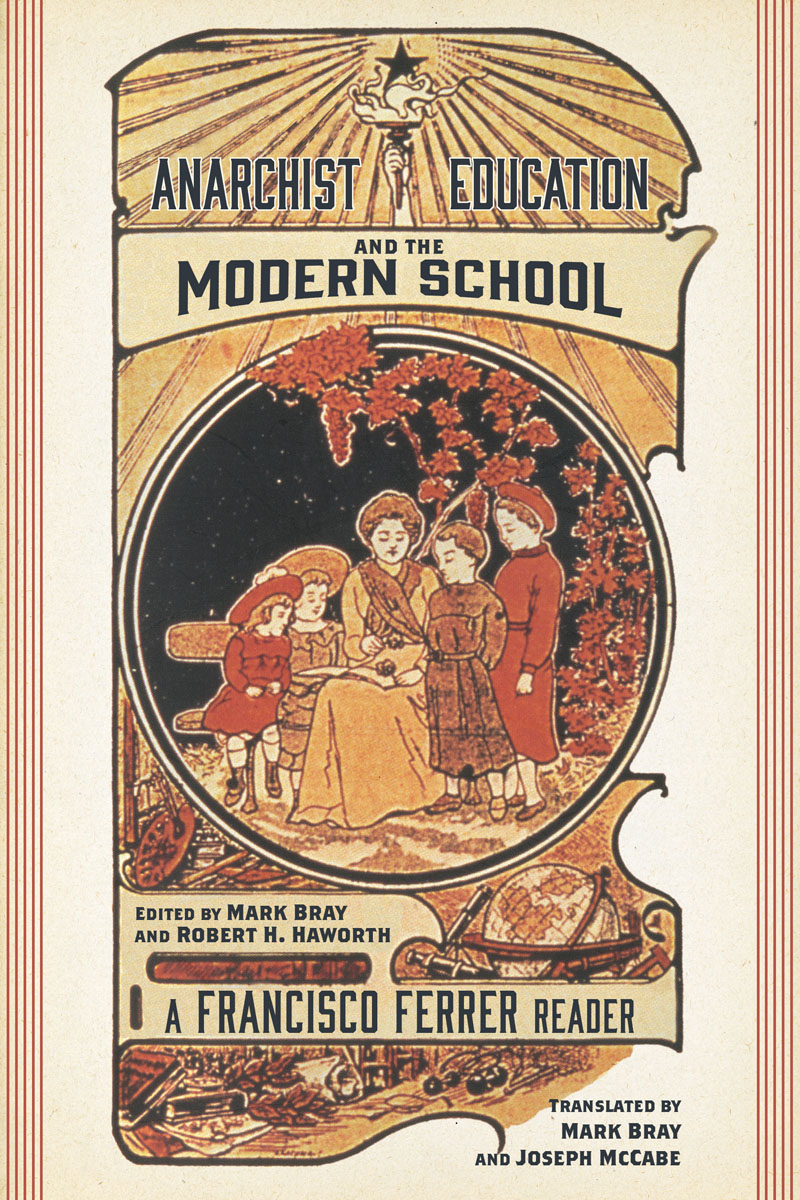
Anarchist Education and the Modern School: A Francisco Ferrer Reader
Edited by Mark Bray and Robert H. Haworth. Translated by Mark Bray and Joseph McCabe
PM Press 2019
All rights reserved. No part of this book may be transmitted by any means without permission in writing from the publisher.
ISBN: 9781629635095
Library of Congress Control Number: 2017964735
Cover by John Yates/Stealworks
Interior design by briandesign
10 9 8 7 6 5 4 3 2 1
PM Press
PO Box 23912
Oakland, CA 94623
www.pmpress.org
Printed in the USA by the Employee Owners of Thomson-Shore in Dexter, Michigan.
www.thomsonshore.com
Neither the State, nor the Church, nor the enemies of the Modern School are capable of resisting the immense weight of Justice.
Francisco Ferrer Guardia
Contents
Acknowledgements
Mark Bray I would like to thank my coeditor Robert H. Haworth and everyone at PM Press. Thank you also to Jelle Bruinsma, Xavi Lpez, Dennis Bos, Jorell Melndez-Badillo, Miguel Prez, Kevan Antonio Aguilar, Kenyon Zimmer, Pierre Kohler, John-Erik Hansson, Sergio Higuera Barco, David R.A., Adriano Skoda, Frederick Schulze, Temma Kaplan, Ellison Moorehead, Manel Aisa and the Ateneu Enciclopdic Popular, Heather Smedberg and the UCSD Special Collections, and the Fundaci Francesc Ferrer i Guardia. Thank you to my amazing familyI was lucky to be raised by two fantastic teachers! Mr. Xavi, welcome to the world and to my acknowledgements! And to Senia, the love of my life, without you this book, and everything else, would be unimaginable. (It was a moment like this, do you remember?)
Robert H. Haworth I would like to say a huge thank you to Mark Bray for expanding this project beyond what was originally conceived. I also would like to thank PM Press (Ramsey, Craig, Steven, Stephanie, and everyone else) for their continued efforts to publish important historical and contemporary radical literature. Additionally, I want to thank my children Dylan and Rachel for always challenging my beliefs about the purpose of education. Of course, I cant express how much I appreciate Holly for her insights, support, and love throughout life.
I would also like to dedicate this book to all the teachers who are struggling to create educational spaces that challenge the world we live in, as well as thinking and acting in ways that provide children and youth inspiration for the future.
A Note on Translation
Unless otherwise noted, all translations are entirely my own except The Modern School, which is an expanded and improved version of Joseph McCabes 1913 abbreviated translation, entitled The Origin and Ideals of the Modern School. McCabes 1913 translation included only about two-thirds of Ferrers text, and he sometimes toned down Ferrers language in an effort to appeal to middle-class English-language readers of the era. Therefore, I supplemented McCabes work with my own translation of the remaining third of the book, modernized some of his language, and returned certain phrases to the original spirit of Ferrers revolutionary pedagogical vision.
Mark Bray
I
Introduction: The Three Faces of Ferrer
Mark Bray
On the morning of October 13, 1909, the famed Catalan pedagogue Francisco Ferrer found himself in front of a firing squad in the moat of Montjuich Castle overlooking Barcelona. After a military show trial plagued by judicial irregularities, the founder of the Modern School was sentenced to death as the author and leader of the rebellion later known as the Tragic Week that erupted over the summer against conscription for the latest Spanish war in Morocco.1 For days, Ferrer longed for word of a pardon from the Conservative prime minister Antonio Maura, who had issued 119 pardons over the previous two years (54 of them for murder), but he would not be so fortunate.2 Instead he spent his final day in the prison chapel where he resolutely refused religious council from the military chaplain, even making a failed plea to authorities to remove the crucifix and altar lamp from the last room he would ever inhabit. When asked if he believed in an afterlife, Ferrer replied, No, seor. I believe that everything ends here; that everything terminates with the life of a man. Since I acquired this conviction many years ago I have adapted all of my actions to it.3 And so, having spent his final years adapting his pedagogical actions to the certainty that nothing mattered beyond life on earth, he stared down the barrels of the rifles pointed in his direction. Muchachos, Ferrer cried out, aim well and fire without fear! I am innocent! Viva la Escuela Moderna! Amid his final words shots rang out. Ferrer faltered briefly before collapsing to the ground.4
While it may have ended right there for Francisco Ferrer the man, Francisco Ferrer the martyr was actively inspiring a groundbreaking international mobilization against this clerical judicial murder.5 A historic wave of protest that had had been mounting since Ferrers arrest cascaded down upon international public opinion as marches, demonstrations, meetings, and even riots across Europe, North Africa, and the Americas defended the legacy of Ferrer and his coeducational, antiauthoritarian, student-centered Modern School. This wave of protest sparked the creation of (more or less) Ferrerian schools across the world, from Mexico to Poland, from China and Japan to Czechoslovakia and the United States, in what came to be known as the Modern School movement. Despite the surging popularity of Ferrers rationalist educational ideals, however, critics argued that Ferrer was a philandering, bloodthirsty anarchist who abandoned his children and defrauded a hapless widow to gamble on the stock market, finance shadowy assassins, and construct a sacrilegious school that taught children how to construct bombs.

1907 postcard of Ferrer. IISG BG A61/180.
In order to refute these accusations and appeal to moderate allies, Ferrers principal supporters often denied or downplayed his anarchism and constructed an image of him as a freethinking pedagogical innovator who was martyred solely for his audacious attempt to promote rationalist education in clerical Spain. As the prominent Dreyfusard and novelist Anatole France asked, What is his crime? His crime is being a republican, socialist, freethinker. His crime is having promoted lay education in Barcelona, instructing thousands of children in independent morality. His crime is having founded a school and a library.6 According to this depiction, the Modern School operated based on purely scientific and rational principles free from all preconceived ideology. The Spanish governments opposition to such groundbreaking pedagogy showed that Ferrer was but the latest victim of the Inquisition. Yet his death was all the more shocking for having occurred in the twentieth century when such barbarity was widely thought to be a relic of the past. Many saw Ferrer as the Spanish Dreyfus, an echo of the case of the Jewish captain Alfred Dreyfus who was wrongfully accused of treason a decade earlier in France. One pamphlet even claimed that Ferrer had taken his place with Socrates, Christ, Savonarola, Huss, Giordano Bruno.7
After the chaos of the Ferrer protest movement subsided, Ferrer and his legacy were cleanly incorporated into the pantheon of anarchist martyrdom by both the Spanish and the international anarchist movements. As anarchists across the world worked to establish rationalist schools, Francisco Ferrer and the movement he catalyzed came to be associated with a sort of anarchist purity grounded in the fundamental task of combatting and uprooting the errors of authoritarian thought at their root in the minds of the youth. This was evident in the summer of 2011, when my partner Senia and I had the opportunity to meet a group of Spanish anarchist exiles who had fled to France with the collapse of the Republic in 1939. After arriving in Paris, they helped to form the French CNT labor federation and publish a periodical for the CNT in exile. By 2011, they set aside time every weekend to get together in the office of the CNT-F on rue des Vignoles. After we introduced ourselves, they happily recounted their memories of the 1930s and 1940s. While most were children when they fled, one man had been a teenager who escaped after his brother was killed. Our conversations covered a wide range of topics, but before we left they gave us postcards with the portrait of Francisco Ferrer on one side and a brief description of his life and work on the other, practically pleading with us to educate ourselves about this great figure. From the perspective of these Spanish exiles, the most important legacy of their collective struggle was Ferrer and the Modern School.
Next page
